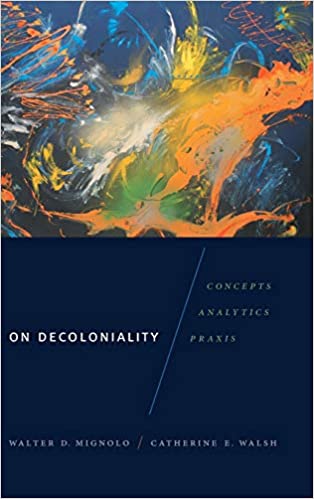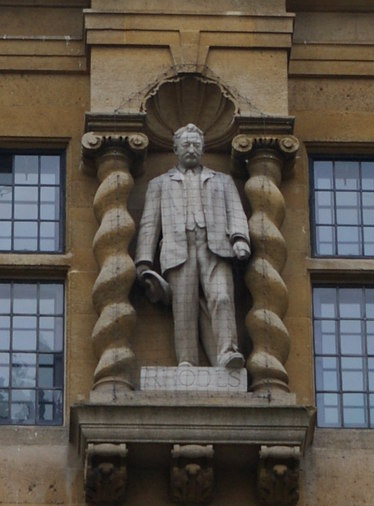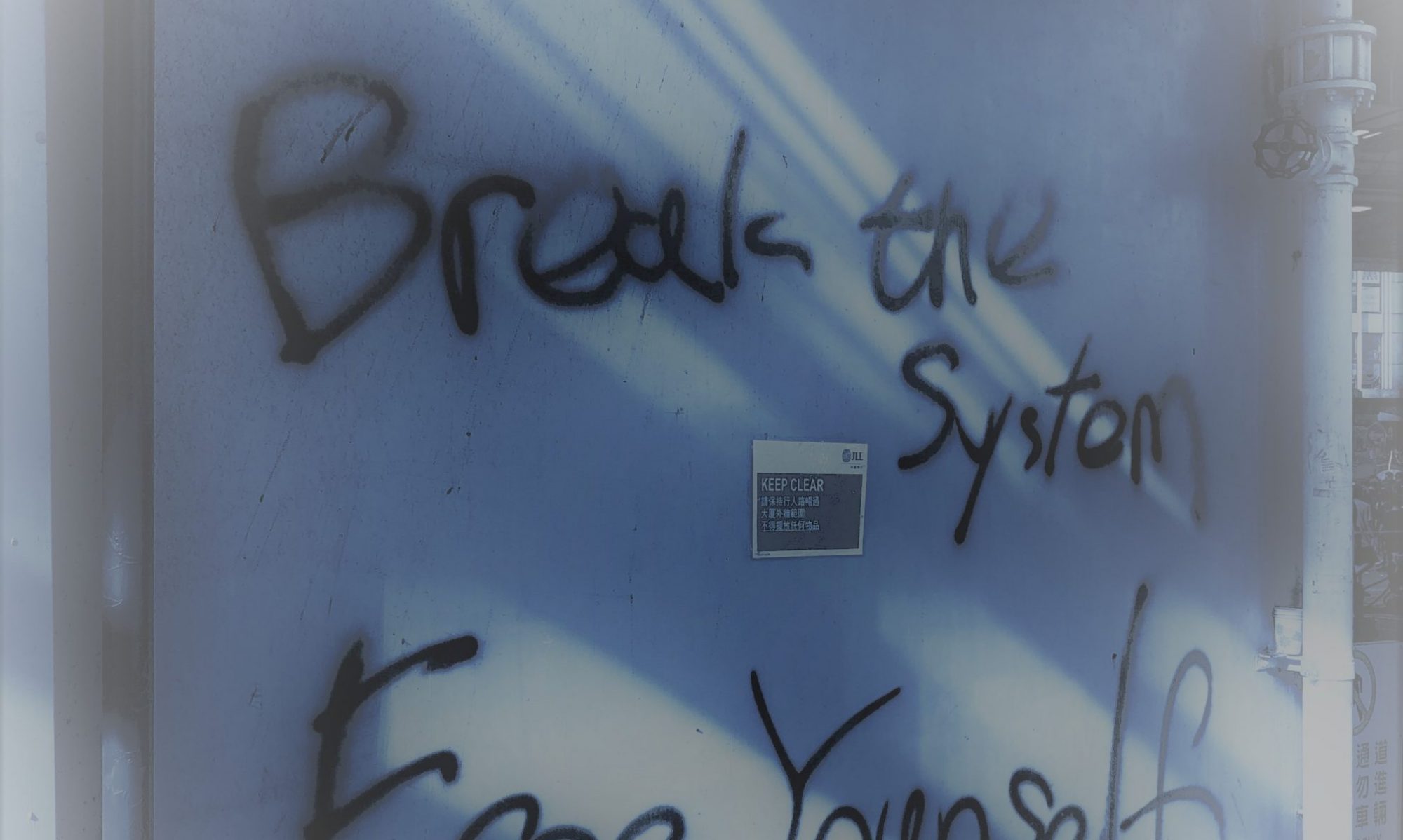I wish to use the first post of this blog series to offer some preliminary thoughts on the terminologies of the ‘decolonial’ (and ‘postcolonial’), in order to get the sharing and conversation started. As I will explain below, sharing, after all, lies at the heart of the project of decolonisation for me. If we need to decolonise ourselves, we cannot do so by keeping our thoughts in our mind; we need to say them out loud and start conversations based on them.
My involvement in the ‘decolonial’ is also informed by my role as a member of Newcastle University’s Postcolonial Research Group. As a sharp-eyed reader would notice, however, the word choice here is ‘postcolonial’. An important starting point for me, then, is to clarify the meanings of ‘the decolonial’ and ‘the postcolonial’, and to understand what convergences and divergences there are between these two terms. The following will be my current reflections on these questions: What does it mean to ‘decolonise ourselves’ in the current context and how can existing theories help us understand this movement better?
The postcolonial
At the outset, the difference between ‘postcolonial’ and ‘decolonial’ is one about academic discipline. As the South African postcolonial scholar Benita Parry (2004) insists, ‘postcolonial studies’ was first called ‘colonial discourse analysis’ and had its roots in the late 1970s, particularly with the publication of the Palestinian-American critic Edward Said’s seminal book, Orientalism (1978). The name ‘colonial discourse analysis’ shows clearly that postcolonial studies was first and foremost an analysis of discourse. Hence, the subsequent attention of the field has focused on the study of the political, economic, social, cultural, and historical impact of European colonialism as registered through texts such as literature. Postcolonial research often focuses on experiences in the Middle East, South Asia, and Africa, and notable critics in addition to Said and Parry include Gayatri Chakravorty Spivak, Homi Bhabha, and others.
Through years of research and self-reflection, postcolonial scholars have identified that even after independence, structures of dominance and exploitation are often perpetuated by the new native elites. It is in this light that, since the 1990s, the prefix ‘post’ in ‘post(-)colonialism’ is understood not as a temporal marker for a clear-cut transition after independence, but as a marker of relationship that registers the ongoing effect of colonialism on a former colony (see Shohat 1992). To express this idea, postcolonial scholars have collapsed the hyphen between ‘post’ and ‘colonial’: today, the general interpretation is that the hyphenated ‘post-colonial’ specifically denotes the time period after a colony has gained independence, but the unhyphenated ‘postcolonial’ refers to a complex understanding of the post-independence period as being continuously constituted and affected by structures and institutions imposed during the colonial era.
The decolonial
Decolonial thoughts may come from a different disciplinary tradition and have a different geographical focus, but coincidentally, many ideas in the decolonial school echo those in the postcolonial stream. The Peruvian sociologist Aníbal Quijano is said to have come up with the concept of the ‘coloniality of power’, having studied Latin America extensively since the 1970s. Quijano’s thoughts later came to be circulated in Anglophone academia thanks to his work being translated into English (see e.g. Quijano 2000) and taken up by the Argentine critic Walter D. Mignolo.

One key understanding of the ‘decolonial’ is that decolonisation does not equal decoloniality. As Mignolo puts it, decolonisation was a project in the second half of the 20th century for native people in regions of Asia, Africa, and South America to take back control of the state. This project was half a success and half a failure, because they also found that native elites who replaced the colonisers still clung on to and perpetuated the exact same structures of privilege and institutions of exploitation. In comes decoloniality, which seeks to understand the close-knit relationship between the colonial condition and the imposition of a Western logic of ‘modernity’ as a consequence of colonialism. Hence, ‘decoloniality’ is not so much a political project than it is an epistemological one: to ‘delink’ ourselves from the structure of knowledge imposed by the West, and then to ‘reconstitute’ our ways of thinking, speaking, and living. We may be tempted to think that, being a sociologist, Quijano’s ideas were more suited to social science research, but Mignolo and many scholars have tried applying the decolonial to literary research on Latin and South Americas. The gist, as Walter Mignolo writes in On Decoloniality, is to understand decoloniality as a ‘praxis’ of ‘undoing and redoing’ (Walsh and Mignolo 2018, p. 120).
The postcolonial and the decolonial
One text that discusses the conceptual interaction between the postcolonial and the decolonial is the sociologist Gurminder Bhambra’s essay, ‘Postcolonial and Decolonial Dialogues’ (2014). Bhambra points out that both the postcolonial and the decolonial are concerned with the troubling notion of ‘modernity’, or, to be precise, with the way the West imposed a ‘universal’ model of ‘modernity’ on other parts of the world through imperial invasion and colonial governance.
Although there are minute differences between these two words, a more productive understanding of these differences is to see them as different perspectives that could be used as tools to facilitate our analyses. While it may be the case that you are more familiar with one theory than the other depending on the discipline and context you study, there is no reason to propose that either is superior to the other. Instead, it will be helpful to realise that both theoretical strands have evolved over a long period of self-reflection and constructive debates among scholars. Unfortunate it is, then, that in an interview a few years ago Walter Mignolo was still seeing the ‘postcolonial’ as a purely temporal category when he says ‘what comes after X has to be conceptualised as post-X’ – much postcolonial research has long argued against a facile temporal understanding of the prefix. The lesson to take away here is that whichever theoretical school one is trained in, it is always more fruitful to learn from the rich debates in different fields and to discover common ground to work on, rather than to make assumptions about each other that may eventually cause divergences.
To de-colon-ise
But if postcolonial and decolonial theories have already been in development for decades, why are we still talking about the project of ‘decolonising the curriculum’ today? In what ways are these theories relevant to the current context in which we talk about ‘decolonising’?
Linguistically, whether the word is postcolonialism, decolonisation, or modernity, it is always the noun that was used to name these theoretical or conceptual strands. The word we are using now, however, is a verb form that suggests action – ‘decolonise/decolonising’ – highlighted both by the prefix ‘de-’ and the verb suffix ‘-ise’. Informed by these morphological features, we ought to notice also that this time we are not only focusing on decolonising the colonies, but we are also decolonsing ‘ourselves’ as students, researchers, and teachers based in higher education institutions in the former colonial empire of the UK, the US, or Euro-America (the West) for that matter. This entails a critical questioning of the very power relations in which we are embedded and the often privileged positions from which we are able to speak. Specifically, I propose three main guiding actions for the project of decolonising ourselves: to act, to reflect, to learn. Three happenings last year in 2020 can illustrate what I mean.
To act: The first is the outrageous killing of George Floyd in May 2020, which sparked mass protests against police brutality and racism in the United States. These protests, which can be seen as part of the larger Black Lives Matter movement going on since 2013, underline the ever-important need to speak up against unjust and unequal treatments we see in society. These inequalities are not limited to race, but also to social class and mobility, gender and sexuality, and language and culture, because these issues always intersect each other. Nothing will change if we don’t act or speak up.

To reflect: The proposal from Oxford University’s Oriel College to remove the statue of Cecil Rhodes in June 2020 has caused much controversy. In fact, it was part of a larger wave of campaigns to remove statues of historical figures like Rhodes who had supported or were involved in slavery, racism, and colonialism. It also tied in to an earlier ‘Rhodes Must Fall’ movement in South Africa in 2015 to remove another Rhodes statue in the University of Cape Town. While voices opposing the removal argue that figures like Rhodes had made substantial contribution to Britain and that removing statues means ‘hiding’ history, Oriel College’s statement on the matter clearly shows that the proposal was the result of ‘a thoughtful period of debate and reflection’ demonstrating ‘the college’s 21st Century commitment to diversity’. Far from ‘hiding’ history, the removal of the statue – which is commemorative by nature – was an acknowledgement of how our intellectual understanding has evolved and improved from flawed perceptions of racial superiority in previous centuries. This is a clear example of how reflecting on our own histories and current positionings could yield productive actions that better demonstrate a commitment to values we cherish, such as equality, diversity, inclusivity, and social justice.
To learn: Amidst the Covid-19 pandemic, many Asian people living in the West have been discriminated against, often facing physical assaults for being lumped together as ‘Chinese’ due to the racist nickname given to Covid as the ‘Chinese virus’, or for wearing face masks long before Western governments and medical institutions conceded to including face coverings in their coronavirus strategies. The ‘maskophobia’, as it has come to be called, reveals the West’s haughtiness in refusing to learn from existing knowledge and previous experiences that East Asian regions have consolidated after facing the SARS coronavirus epidemic in 2003. In the era of fake news and conspiracy theories, doctors have even had to debunk unscientific myths about oxygen deprivation from face masks. Judging from the success stories of controlling the pandemic in high-density Asian places like Taiwan and Japan, it cannot be stressed enough how important it is to learn from and about each other.
In the span of a single year, we witness three happenings – the death of George Floyd, the removal of the Rhodes Statue, and maskphobia against Asians amidst Covid – that together reflect the urgency to decolonise ourselves. The point of decolonising for me is to never see them as isolated incidents that happened in a vacuum or only concern some of us. Instead, it is imperative to understand them as reflective of the way all our histories (histories of colonisation, gender oppression, social class exploitation, etc.) are yoked together and affect each other in the present moment. The important thing to do is to build solidarities and communicate with each other as much and as truthfully as possible, because as Asian American Studies scholar Jennifer Ho (2020) says powerfully: ‘anti-racism requires all of us to be in this together’.
References
Bhambra, Gurminder K. (2014) Postcolonial and decolonial dialogues. Postcolonial Studies 17 (2), pp. 115–121.
Ho, Jennifer. (2020) Anti-Asian racism, Black Lives Matter, and COVID-19. Japan Forum, 33 (1), pp. 148–159. doi: 10.1080/09555803.2020.1821749.
Parry, Benita. (2004) The institutionalization of postcolonial studies. In: Neil Lazarus, ed. The Cambridge Companion to Postcolonial Literary Studies. Cambridge: Cambridge University Press, pp. 66–80.
Quijano, Aníbal. (2000) Coloniality of power, Eurocentrism, and Latin America. Nepantla: Views from South, 1 (3), pp. 533–580.
Shohat, Ella. (1992) Notes on the ‘post-colonial’. Social Text, 31/32, pp. 99–113.
Walsh, Catherine E., and Walter D. Mignolo. (2018) On Decoloniality: Concepts, Analytics, Praxis. Durham and London: Duke University Press.
[Michael Tsang is Leverhulme Postdoctoral Fellow based in the School of Modern Languages, Newcastle University, working on a project on 20th-century book circulation between the West and East Asia (China/Japan). He is an administrator of this blog.]

Boring
A very succinct and extremely useful post. It entices one to read more on the subject and think creatively in order to see the links of everyday happenings ( ( killing of Floyd, mask phobia and removal of historical symbols of slavery) with the bigger picture that reveals what is postcolonialism and decolonialism and the necessity to challenge Western domination of the world.
A very succinct and extremely useful post. It entices one to read more on the subject and think creatively in order to see the links of everyday happenings ( ( killing of Floyd, mask phobia and removal of historical symbols of slavery) with the bigger picture that reveals what is postcolonialism and decolonialism and the necessity to challenge Western domination of the world.
Dear Michael,
Thank you for the interesting blog post. I only wanted note that Decoloniality IS a political and social project as well, one that is very much present in Latin America. From the Zapatistas to Indigenous and Afro communities in Colombia and Ecuador. Important also, even though maybe many do not use the word decoloniality, many praxis are. Saludos!
Are you looking for A-quality rims? Then choose Wheelpoint.nl, here you will find more than 500+ alloy wheel sets, but also hundreds of tires. Manywheels/ tires are immediately available from stock! You will find the largest range of new rims (and tires) in the Netherlands at Wheelpoint. But did you know that you can also buy a set of second-hand rims from us? It is even possible to trade in your current wheels and then buy new ones.
asdf
asdf
asdf
asdf
asdf
asdf
asdf
asdf
asdf
asdf
asdf
Kurumsal Key | Markaların dijital dünyada başarısını artırmak için doğru strateji ve çözümler sunuyoruz. Kurumsal Key ile hedeflerinizi gerçekleştirin.
Loved how you broke things down.馃憤 I enjoyed the casual tone 鈥?made it easy to read. 馃檪
I wasn鈥檛 expecting much, but this turned out great…. Clear and concise guidance.